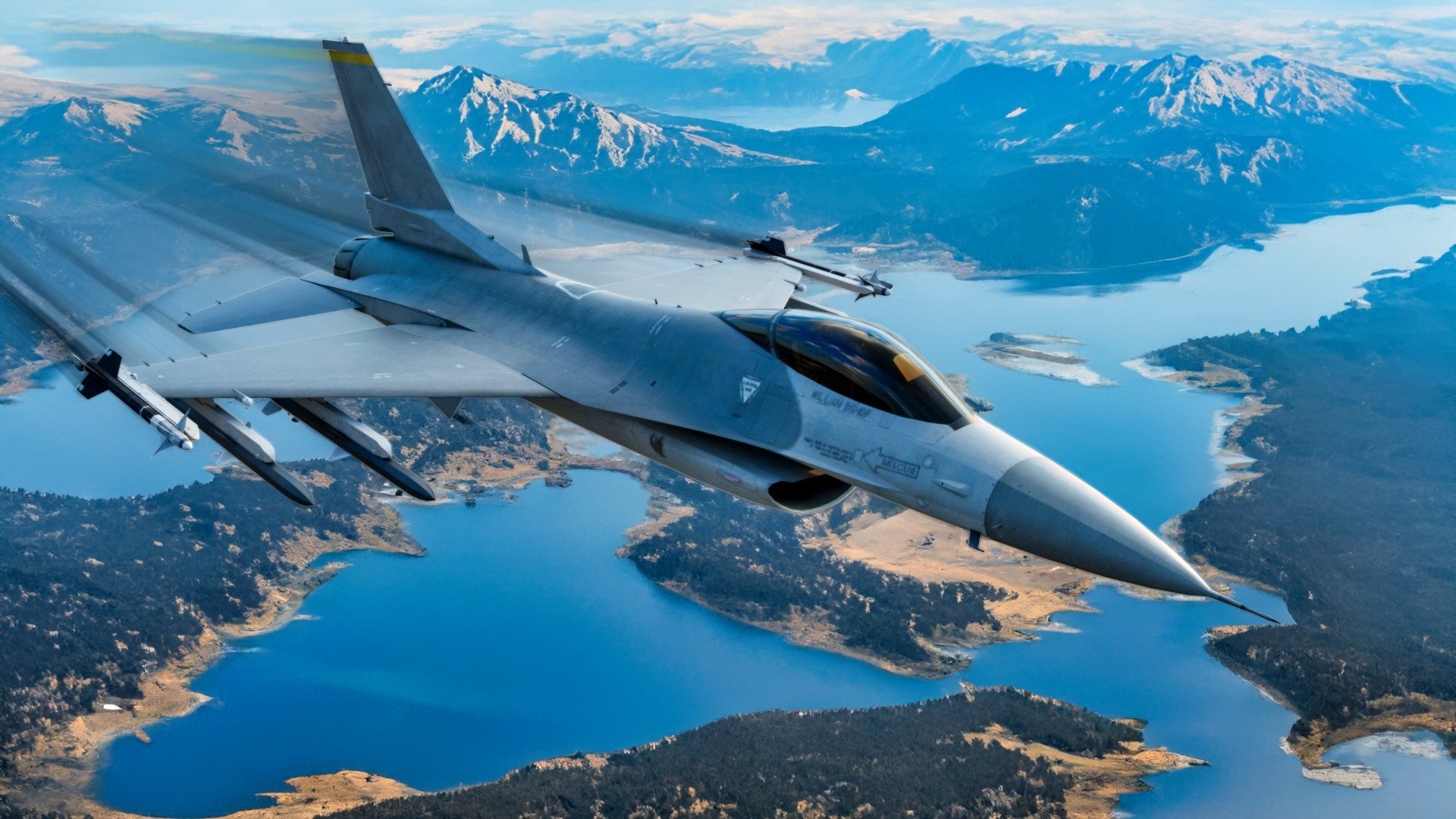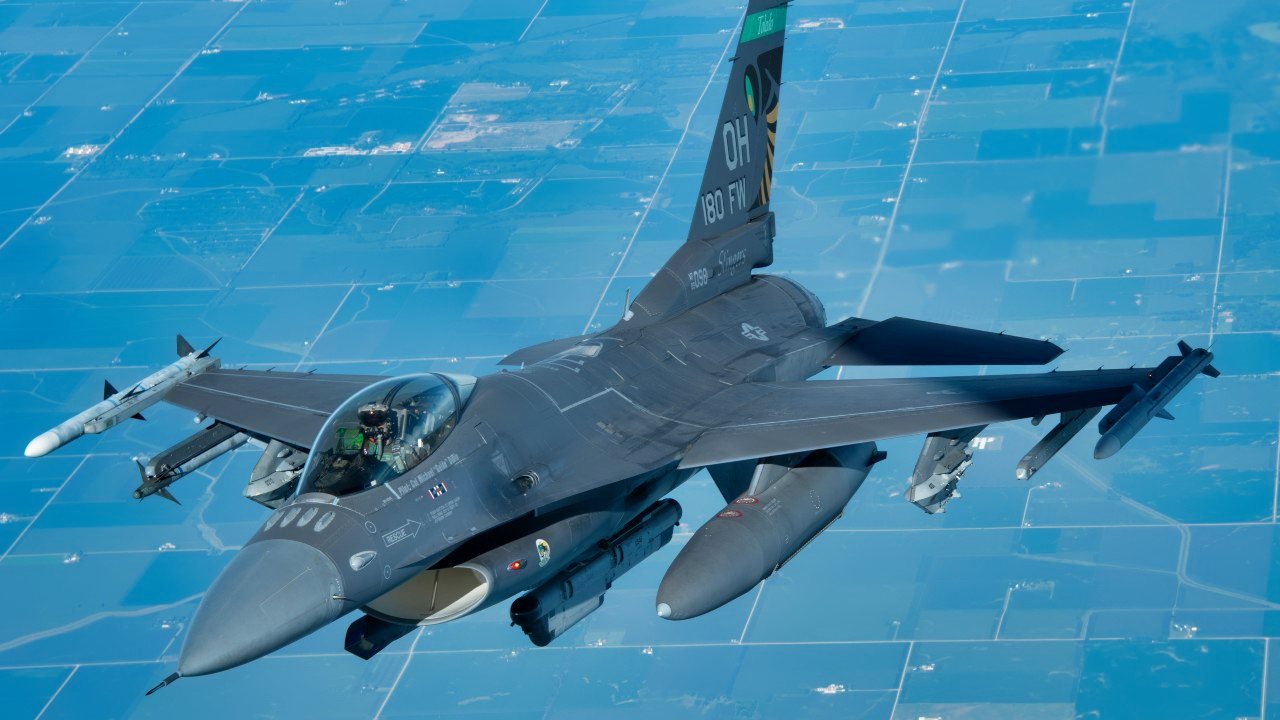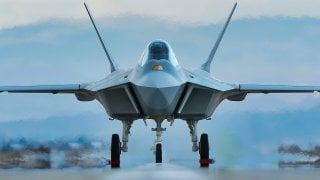Turkey 'Pleased' With F-16 Fighter Deal (But TAI TF Kaan Is On the Way)
After being expelled from the F-35 program due to its acquisition of the Russian S-400 air defense system, Turkey turned to the Lockheed Martin Block-70 F-16 Fighting Falcon as a substitute. Turkey secured a $23 billion deal with the U.S. to purchase 40 of the advanced Block-70 models and upgrade kits for its existing F-16 fleet.
Summary and Key Points: After being expelled from the F-35 program due to its acquisition of the Russian S-400 air defense system, Turkey turned to the Lockheed Martin Block-70 F-16 Fighting Falcon as a substitute. Turkey secured a $23 billion deal with the U.S. to purchase 40 of the advanced Block-70 models and upgrade kits for its existing F-16 fleet.

-The Block-70 F-16s, featuring cutting-edge avionics and safety systems like the Auto GCAS, are viewed as a stopgap while Turkey develops its domestic TAI TF Kaan fighter.
-Despite setbacks, Turkey remains committed to enhancing its air force capabilities.
The Turkish military wanted the Lockheed Martin F-35 Lightning II, but Ankara was expelled from the F-35 program after it acquired the Russian-made S-400 Triumf air defense system. Washington and NATO leadership argued the F-35 and S-400 are not compatible, and that Turkey operating both would put the security of the fifth-generation stealth fighter at risk.
However, Turkey is apparently more than satisfied with its proverbial consolation prize – namely the Lockheed Martin-made Block-70 F-16 Fighting Falcon, as well as modernization kits for its existing fleet of F-16s. The upgrades are now going as planned, Turkish Defense Minister Yasar Guler told Reuters on Monday.
"We hope the project will be completed without any problems until the last jet is delivered," Guler said in a written response to Reuters, adding that Washington and Ankara are still in discussions over the deal.
The United States and Turkey, both members of NATO, signed a contract for the sale of the Fighting Falcons in June. Washington finally greenlighted the $23 billion deal after months of negotiations. In total, Turkey will purchase 40 of the Block-70 models, the most upgraded variant of the F-16. In addition, it will receive upgrade kits for its fleet of older Fighting Falcons.
The United States finally agreed to conclude the deal after Turkey approved Sweden's bid to join NATO.
Most Advanced F-16 to Date
The F-16 Block 70 is a significantly upgraded version of the decades-old Fighting Falcon. The aircraft are equipped with the Northrop Grumman APG-83 AESA Radar; advanced avionics; an extended structural service life of 12,000 hours; and critical safety features like the Automatic Ground Collision Avoidance System (Auto GCAS).
Since its integration into the U.S. Air Force in late 2014, the Auto GCAS has been instrumental in saving 13 pilots across twelve F-16 incidents, exemplifying the aircraft's unparalleled safety and performance standards.
The Fighting Falcon is no longer being acquired by the U.S. Air Force, but Lockheed Martin continues to build the F-16 for foreign customers around the world. It remains the most successful, combat-proven multirole fighter jet ever produced, with more than 4,600 aircraft built since production was approved in 1976.
Despite the fighter having made its first flight more than 50 years ago, it is now one of the world's most in-demand multirole combat aircraft. Lockheed Martin currently has a significant backlog of F-16 Block 70/72 jets to be produced in Greenville.
A Lockheed Martin spokesperson told Bloomberg News in June that the aerospace firm remains "confident the F-16 Block 70 and V upgrade package represents the best mix of advanced 21st Century Security capabilities, enhanced NATO interoperability, and affordable operating and life cycle costs for Turkey."

A Stopgap Fighter for Turkey: TAI TF Kaan Is Coming
Ankara has sought to retire its aging fleet of F-4 fighters. The F-16s are considered a stopgap measure as Turkey continues to develop a domestic fighter, the TAI TF Kaan.
That aircraft has been in development for more than a decade, and it made its maiden flight in February.
Turkey has also looked at other options. Last November it began talks with the UK and Spain to purchase 40 Eurofighter Typhoon aircraft when it appeared the F-16 deal might not be completed.
Author Experience and Expertise: Peter Suciu
Peter Suciu is a Michigan-based writer. He has contributed to more than four dozen magazines, newspapers, and websites with over 3,200 published pieces over a twenty-year career in journalism. He regularly writes about military hardware, firearms history, cybersecurity, politics, and international affairs. Peter is also a Contributing Writer for Forbes and Clearance Jobs. You can follow him on Twitter: @PeterSuciu. You can email the author: [email protected].
Image Credit: Creative Commons and/or Shutterstock.


